Isaiah 4 meaning explained in AI Summary
Isaiah Chapter 4 paints a picture of hope and restoration for Jerusalem after a time of judgment and devastation. of the key themes:
1. Scarcity and Seeking Refuge (Verse 1):
- The chapter opens with a scene of desolation. So few men are left after the judgment that women will be pleading for them to take them as wives, just to preserve their family names and lineage. This highlights the severity of the destruction and the longing for stability.
2. The Branch of the Lord (Verse 2):
- Amidst the despair, a glimmer of hope emerges. The "branch of the Lord" will be beautiful and glorious, representing the future restoration and blessing that God promises. This branch symbolizes a renewed Davidic king or even the Messiah, who will bring forth righteousness and prosperity.
3. Purification and Protection (Verses 3-6):
- Those who survive the judgment and remain in Jerusalem will be considered holy, a remnant purified by the trials they endured.
- God promises to protect and cleanse his people. The imagery of washing away filth and blood signifies spiritual cleansing and forgiveness.
- A shelter, a shade, and a refuge are promised, symbolizing God's constant protection and care for his people.
Overall Message:
Isaiah 4 offers a message of hope amidst despair. While judgment is a necessary consequence of sin, God's love for his people remains steadfast. He promises restoration, purification, and protection for those who remain faithful. The chapter points towards a future time when God's glory will be fully revealed through the "branch of the Lord."
Important Note: Interpretations of Isaiah 4 can vary. Some see it as solely focused on the immediate future of Jerusalem, while others view it through a messianic lens, connecting it to the ultimate hope offered through Jesus Christ.
Isaiah 4 bible study ai commentary
This chapter powerfully contrasts the depths of human degradation resulting from sin and judgment with the heights of divine glory in the restoration of a purified remnant. It transitions sharply from the final, grim consequences of the judgment described in chapter 3 to a glorious Messianic prophecy, outlining the process and character of the future kingdom: a beautiful Messiah, a holy people, a purging purification, and a permanent, glorious divine presence.
Isaiah 4 context
This prophecy was given by Isaiah during the 8th century BC, a time of increasing political instability and moral decline in the Kingdom of Judah. The looming threat of the Assyrian empire provided the immediate backdrop for warnings of judgment. This specific chapter acts as a hinge, concluding the oracle of judgment against Judah and Jerusalem (Isaiah 2:6-3:26) by showing its ultimate social consequence, and then pivoting to introduce the Messianic hope that lies beyond that judgment. It's a classic prophetic pattern of judgment followed by restoration.
Isaiah 4:1
And seven women shall take hold of one man in that day, saying, “We will eat our own bread and wear our own clothes, only let us be called by your name; take away our reproach.”
In-depth-analysis
- This verse is the sociological climax of the judgment detailed in chapter 3, specifically the loss of men in battle (Isa 3:25).
- Seven women to one man: This depicts a catastrophic shortage of men, leading to a complete reversal of societal norms where women, not men, initiate marriage proposals. The number seven signifies completeness, indicating the extremity of the situation.
- Eat our own bread and wear our own clothes: They renounce the primary obligations of a husband in ancient Israelite law (Ex 21:10), which were to provide food, clothing, and conjugal rights. Their desperation is purely for a change in status.
- Let us be called by your name: This means to be recognized as his wife, to have a legal and social identity tied to a man.
- Take away our reproach: The primary "reproach" (cherpah) in that culture was being unmarried and childless, which was seen as a sign of shame and divine disfavor.
Bible references
- Isaiah 3:25-26: 'Your men shall fall by the sword... and she, being desolate, shall sit on the ground.' (The direct cause of the desperation in 4:1).
- Lamentations 1:1: 'How lonely sits the city that was full of people! How like a widow has she become...' (Describes the desolation of Jerusalem after judgment).
- Luke 1:25: 'Thus the Lord has done for me in the days when he looked on me, to take away my reproach among people.' (Elizabeth celebrating the removal of the shame of childlessness).
Cross references
Ex 21:10 (husband's duty); Gen 30:23 (reproach of childlessness); 1 Sam 1:6-7 (Hannah's reproach); Ruth 4:10 (raising up the name of the dead).
Isaiah 4:2
In that day the branch of the LORD shall be beautiful and glorious, and the fruit of the land shall be the pride and honor of the survivors of Israel.
In-depth-analysis
- In that day: A dramatic shift in tone. This phrase introduces a new, eschatological period—the era of salvation that follows the judgment.
- The Branch of the LORD:
- Word: Tsemach Yahweh (צֶ֫מַח יְהוָה). Tsemach means a sprout, shoot, or growth.
- This is a key Messianic title. It refers to the coming Davidic King who will "sprout" from the line of Jesse and David. He is not just a human king, but divine ("of the LORD").
- Fruit of the land: This has a dual meaning. It refers to the supernatural abundance and blessing of the restored land, but in parallel with "the Branch," it can also poetically refer to the Messiah in his humanity, born of the "earth" of Israel.
- Beautiful and glorious... pride and honor: The Messiah and His kingdom will be the source of ultimate aesthetic and moral beauty, replacing the shame and desolation of verse 1.
- Survivors of Israel: This restoration is not for everyone, but for the "remnant" who have passed through the judgment.
Bible references
- Jeremiah 23:5: 'Behold, the days are coming, declares the LORD, when I will raise up for David a righteous Branch (tsemach), and he shall reign as king...' (Explicitly identifies the Branch as the Messianic King).
- Zechariah 3:8: '...I am bringing my servant the Branch (tsemach).' (The Branch as the priestly Servant).
- Zechariah 6:12: 'Behold, the man whose name is the Branch (tsemach)! For he shall branch out from his place, and he shall build the temple of the LORD.' (The Branch as the temple-builder).
- John 15:1: 'I am the true vine, and my Father is the vinedresser.' (Jesus as the source of spiritual fruit).
Cross references
Isa 11:1 (shoot from the stump of Jesse); Isa 53:2 (tender plant, root out of dry ground); Rev 5:5 (Lion of Judah, Root of David); Hos 2:21–22 (earth will respond with grain).
Isaiah 4:3
And he who is left in Zion and remains in Jerusalem will be called holy, everyone who has been recorded for life in Jerusalem.
In-depth-analysis
- Left in Zion... remains in Jerusalem: Another description of the purified remnant who have survived God's judgment.
- Will be called holy: Their defining characteristic is holiness (qadosh). This is not just a title but a conferred status and an actual state of being, set apart for God and morally pure.
- Recorded for life in Jerusalem: This points to the concept of a divine registry, the "book of life." To be written in this book means one is destined for eternal life in the restored, heavenly Jerusalem. Their survival is not by chance but by divine decree.
Bible references
- Revelation 3:5: 'The one who conquers... I will never blot his name out of the book of life...' (Affirms the reality of the book of life for believers).
- Philippians 4:3: '...whose names are in the book of life.' (Paul mentions his coworkers' inclusion in this book).
- Daniel 12:1: '...at that time your people shall be delivered, everyone whose name shall be found written in the book.' (Connects being written in the book with end-times deliverance).
- Hebrews 12:22-23: 'But you have come to Mount Zion and to the city of the living God, the heavenly Jerusalem... and to the assembly of the firstborn who are enrolled in heaven.' (The NT reality of being part of the heavenly Jerusalem).
Cross references
Ex 32:32 (Moses on the book); Ps 69:28 (blotted from the book of the living); Isa 6:13 (the remnant as a holy seed); 1 Pet 2:9 (a holy nation).
Isaiah 4:4
when the Lord shall have washed away the filth of the daughters of Zion and cleansed the bloodstains of Jerusalem from its midst by a spirit of judgment and by a spirit of burning.
In-depth-analysis
- This verse explains how the remnant becomes holy: through a divine, fiery cleansing.
- Washed away the filth of the daughters of Zion: Directly addresses the sin of pride and vanity described in Isaiah 3:16-24.
- Cleansed the bloodstains: Refers to the guilt of social injustice, oppression, and possibly literal bloodshed that permeated Jerusalem.
- Spirit of judgment and spirit of burning:
- Word: The Hebrew is ruach mishpat and ruach ba'er. Ruach can mean wind, breath, or spirit.
- This is not a human process. It is a work of God's Spirit.
- Judgment (mishpat): This is a discriminating justice that separates the righteous from the wicked.
- Burning (ba'er): This evokes the image of a refiner's fire, which burns away impurities (dross) to purify the metal (the remnant). It is a painful but purificatory process.
Bible references
- Malachi 3:2-3: 'But who can endure the day of his coming?... For he is like a refiner's fire... He will sit as a refiner and purifier of silver, and he will purify the sons of Levi...' (The classic passage on the Messiah's coming as a purifying fire).
- Matthew 3:11: '...he will baptize you with the Holy Spirit and fire.' (John the Baptist describes Jesus' work as a fiery baptism that both saves and judges).
- 1 Corinthians 3:13-15: '...each one's work will become manifest, for the Day will disclose it, because it will be revealed by fire, and the fire will test what sort of work each one has done.' (The testing and purification of the believer's life).
- Zechariah 13:9: 'And I will put this third into the fire, and refine them as one refines silver, and test them as gold is tested.' (Another clear prophecy of a remnant purified by fire).
Cross references
Ezek 36:25 (sprinkle clean water); Tit 3:5 (washing of regeneration); Joel 2:28-29 (outpouring of the spirit).
Isaiah 4:5
Then the LORD will create over the whole site of Mount Zion and over her assemblies a cloud by day, and smoke and the shining of a flaming fire by night; for over all the glory there will be a canopy.
In-depth-analysis
- The result of purification is a restored, manifest presence of God.
- Cloud by day... fire by night: A direct and unmistakable allusion to the pillar of cloud and fire that guided and protected Israel during the Exodus (Ex 13:21-22). This signifies a "New Exodus" where God's presence will no longer be confined to the Tabernacle but will cover every part of Zion and her worshipping assemblies.
- Will create: The word bara', the same word used in Genesis 1:1, indicates a supernatural, divine act. This is something only God can do.
- Over all the glory there will be a canopy:
- Word: The canopy is a chuppah (חֻפָּה), the Hebrew word for a wedding canopy.
- This implies God’s glorious, protective presence dwelling with His people in a relationship of covenantal love and intimacy, like a bridegroom with his bride. The "glory" is God's own manifest presence, and the chuppah protects it and the people under it.
Bible references
- Exodus 13:21-22: 'And the LORD went before them by day in a pillar of cloud to lead them along the way, and by night in a pillar of fire to give them light...' (The original event being referenced).
- Exodus 40:34-35: 'Then the cloud covered the tent of meeting, and the glory of the LORD filled the tabernacle.' (The glory-cloud marking God's presence).
- Revelation 21:3: 'Behold, the dwelling place of God is with man. He will dwell with them, and they will be his people...' (The ultimate fulfillment of God's presence with His people).
- Zechariah 2:5: 'And I will be to her a wall of fire all around, declares the LORD, and I will be the glory in her midst.' (A parallel prophecy of God's glorious, protective presence).
Cross references
Ps 91:1 (shadow of the Almighty); Rev 15:8 (temple filled with smoke from God's glory); Joel 2:28 (outpouring of the Spirit).
Isaiah 4:6
There will be a booth for shade by day from the heat, and for a refuge and a shelter from the storm and rain.
In-depth-analysis
- This verse details the practical protective function of the divine canopy (chuppah) from verse 5.
- A booth: The word is sukkah (סֻכָּה), which gives its name to the Feast of Tabernacles (or Booths). This feast commemorated God’s protection during the wilderness wanderings and looked forward to the Messianic age when God would dwell with His people.
- Shade from the heat... refuge from the storm and rain: This imagery portrays God's total and complete protection from every kind of trial and affliction, whether the scorching "heat" of persecution or the "storm and rain" of life’s tribulations.
Bible references
- Psalm 27:5: 'For he will hide me in his shelter (sukkah) in the day of trouble; he will conceal me under the cover of his tent...' (The sukkah as a place of divine protection).
- Isaiah 25:4: 'For you have been a stronghold to the poor, a stronghold to the needy in his distress, a refuge from the storm and a shade from the heat...' (A very similar promise of God as a refuge).
- Revelation 7:15-16: '...he who sits on the throne will shelter them with his presence. They shall hunger no more, neither thirst anymore; the sun shall not strike them, nor any scorching heat.' (The eschatological fulfillment of this protection in the new creation).
Cross references
Ps 91:1-2 (refuge and fortress); Isa 32:2 (a man as a hiding place); Ps 121:5-6 (the Lord is your shade).
Isaiah chapter 4 analysis
- The Chiasm of Judgment and Grace: The chapter provides a beautiful pivot. It begins with the ultimate ugliness of sin's consequence (social collapse, v. 1) and ends with the ultimate beauty of God's presence (a glorious canopy, vv. 5-6). At the center of this pivot is "The Branch of the LORD" (v. 2), the Messiah, who makes this transformation possible.
- The Development of the Remnant: This chapter clarifies that the "remnant" is not merely a group of survivors, but a divinely chosen, supernaturally purified ("spirit of burning"), and eternally secure ("recorded for life") community.
- Messiah's Fullness: The prophecy uniquely joins "the Branch of the LORD" (His divine nature) with "the fruit of the land" (His human nature and the blessing He brings). He is both heavenly and earthly, the source of both spiritual and physical flourishing.
- From Tabernacle to Universal Presence: The imagery of the cloud and fire is expanded. In Exodus, it covered the Tabernacle. Here, it covers "the whole site of Mount Zion and her assemblies," showing a broader, more personal, and permanent dwelling of God with all His people. The use of chuppah (wedding canopy) over the sukkah (booth) infuses the theme of divine protection with covenantal intimacy and marital joy.
Isaiah 4 summary
Isaiah 4 moves from the complete social devastation caused by sin and judgment (v. 1) to a radiant prophecy of future restoration. This hope is centered on the Messianic "Branch," who will bring glory to a purified remnant. This remnant, divinely cleansed by a spirit of judgment and fire, will enjoy the permanent, protective, and intimate presence of God, likened to the pillar of cloud and fire and a wedding canopy, sheltering them from all harm.
Isaiah 4 AI Image Audio and Video
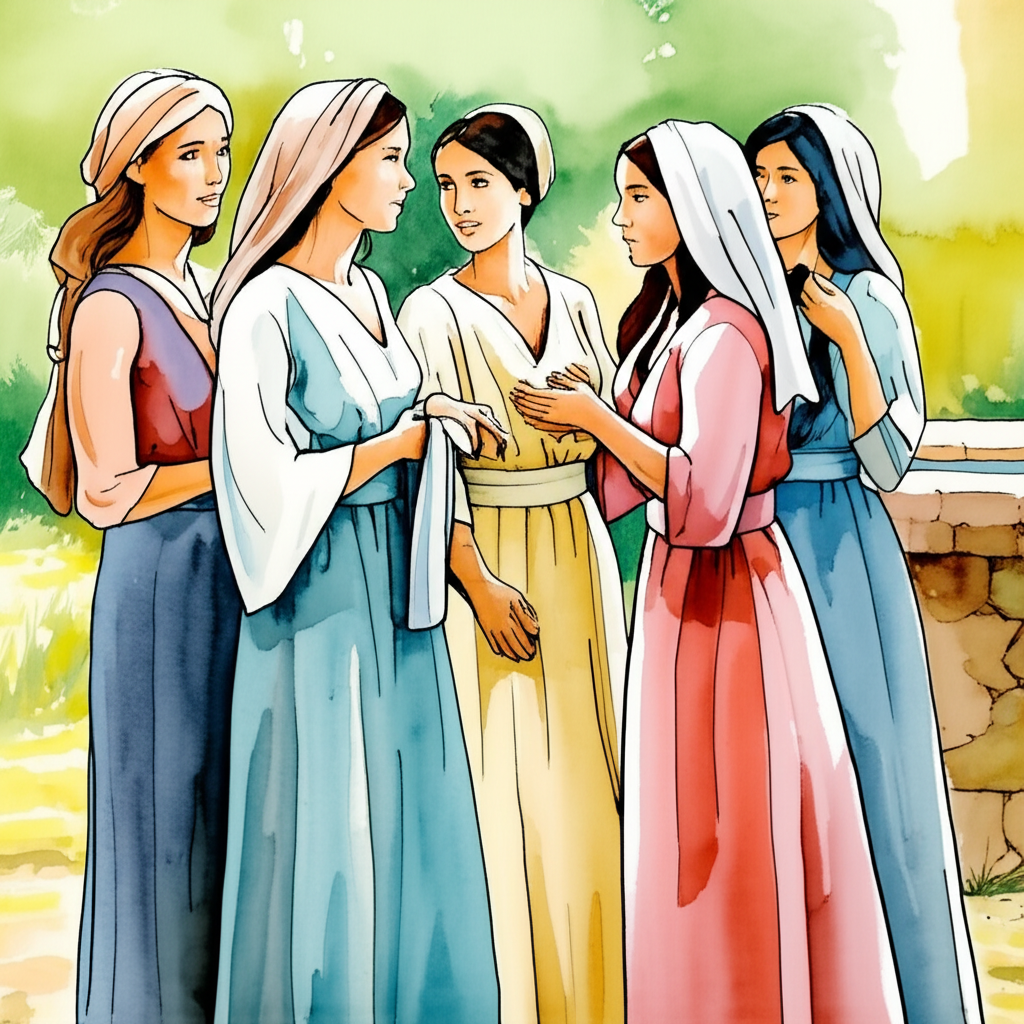
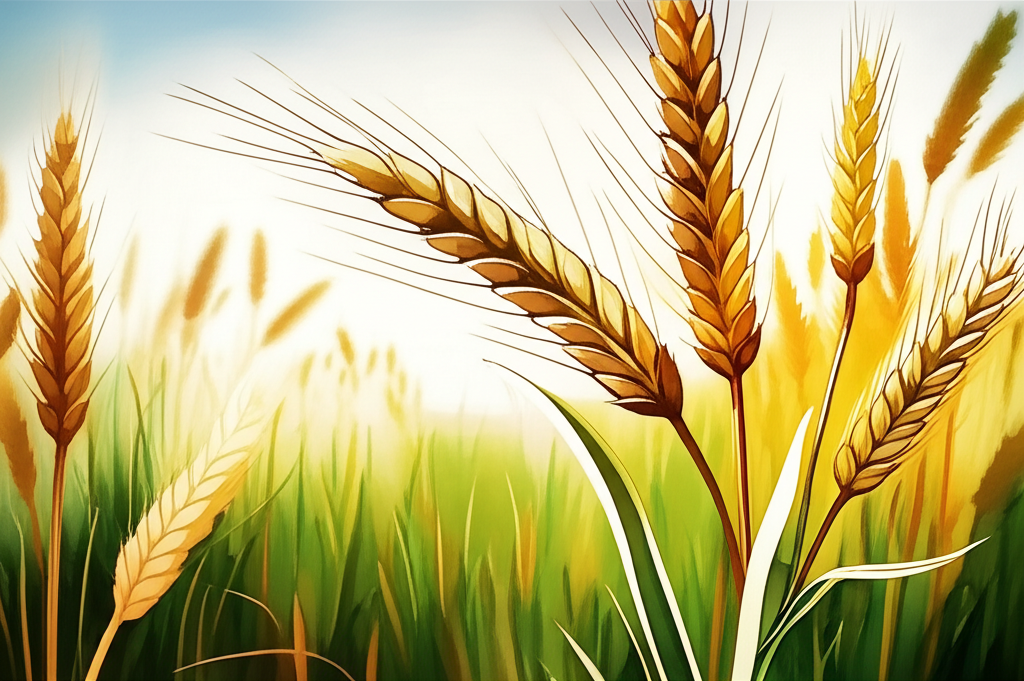
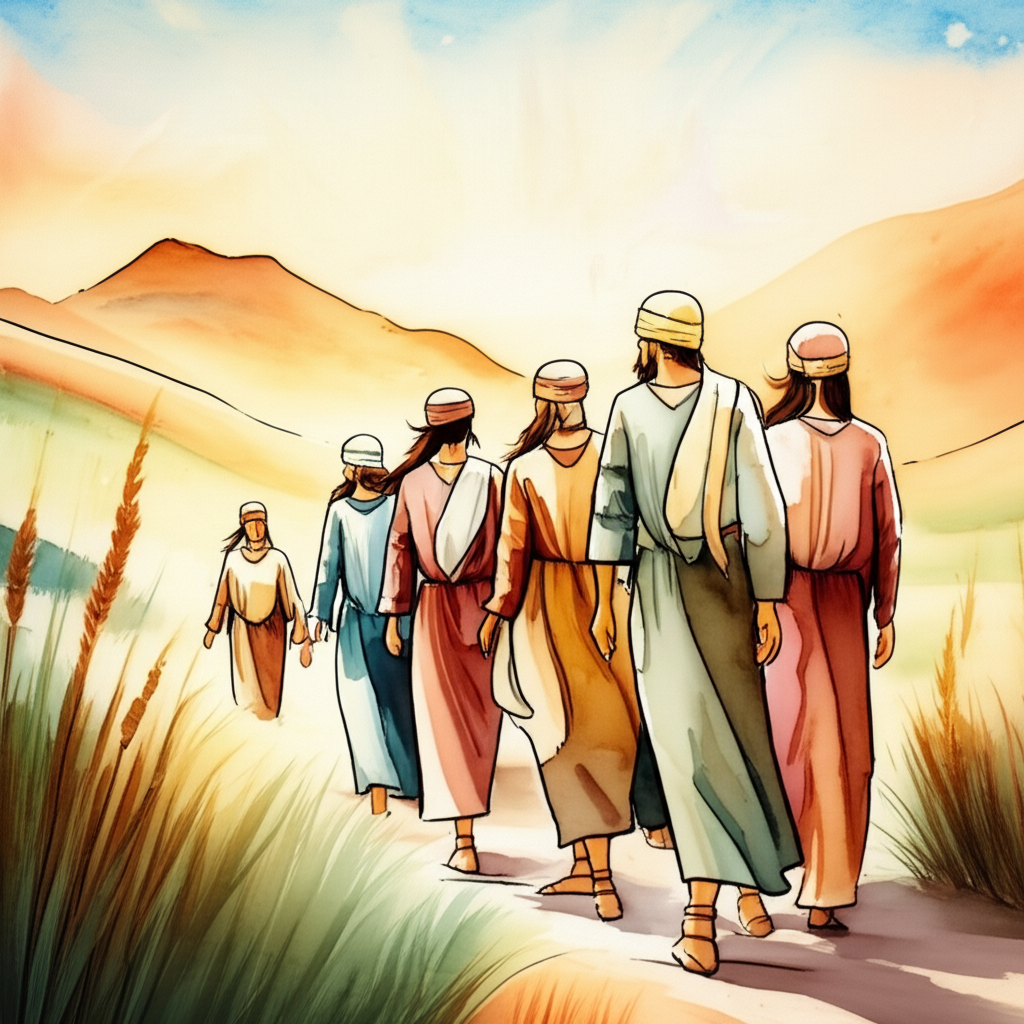
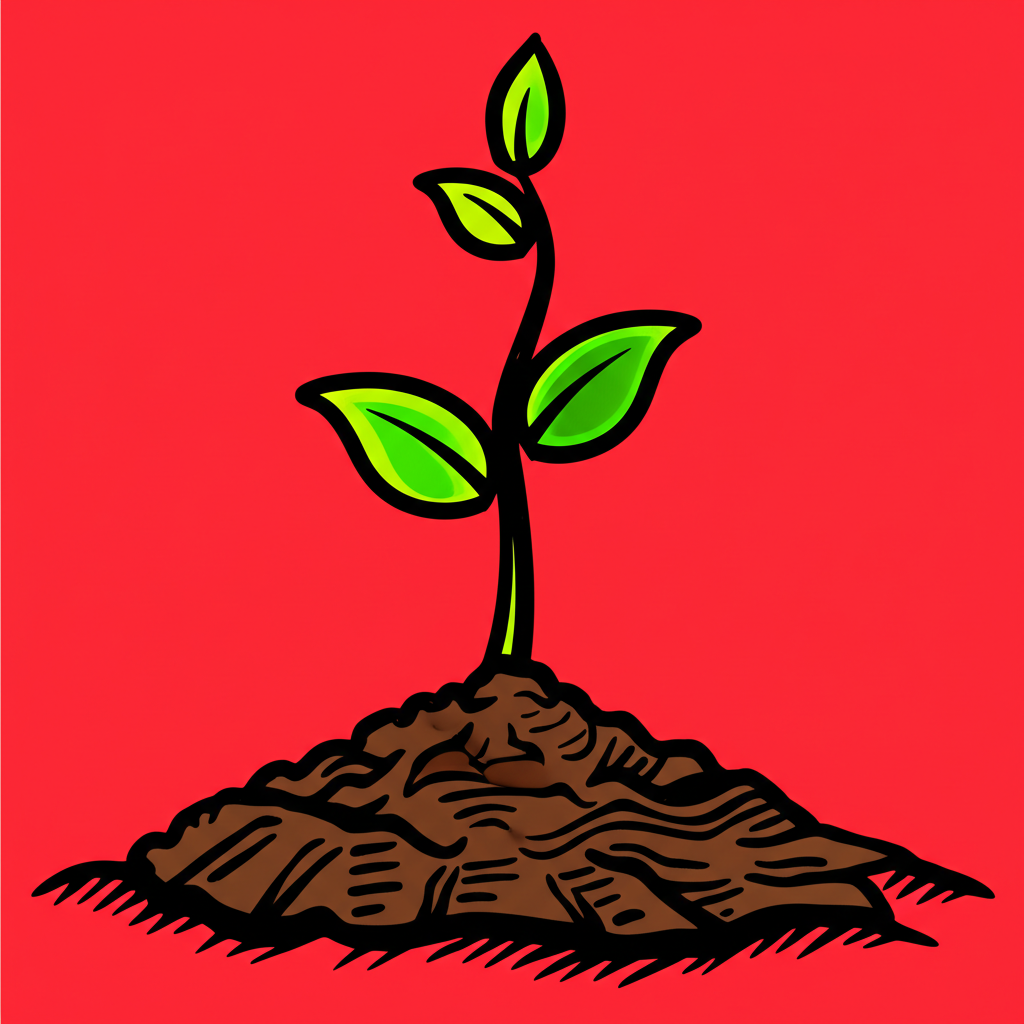


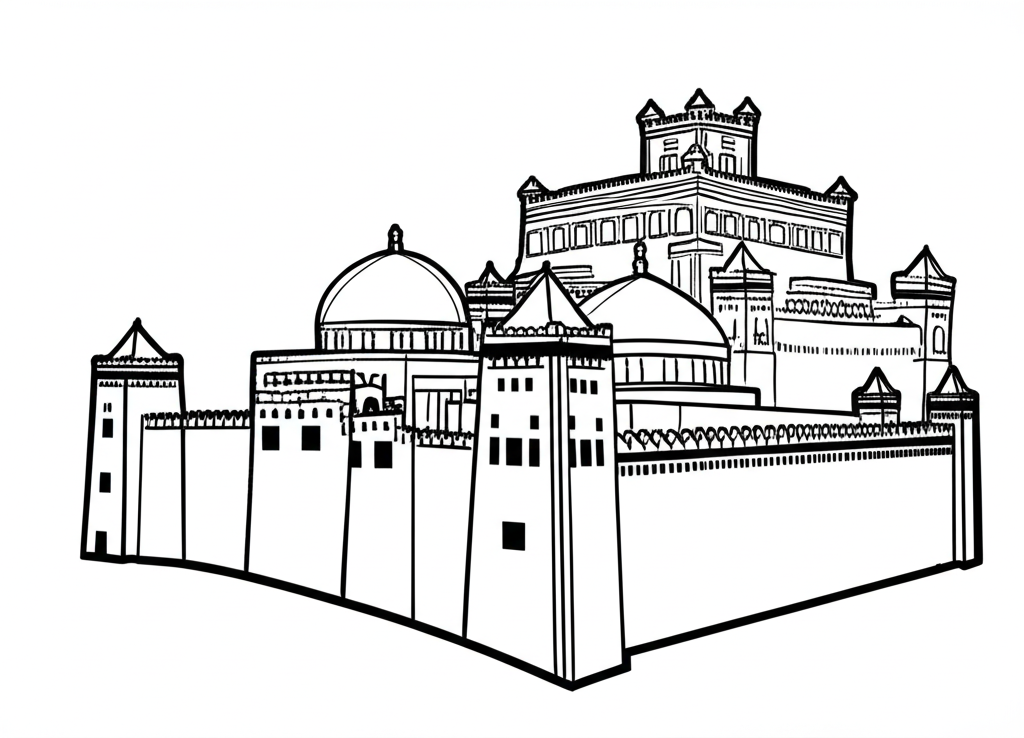
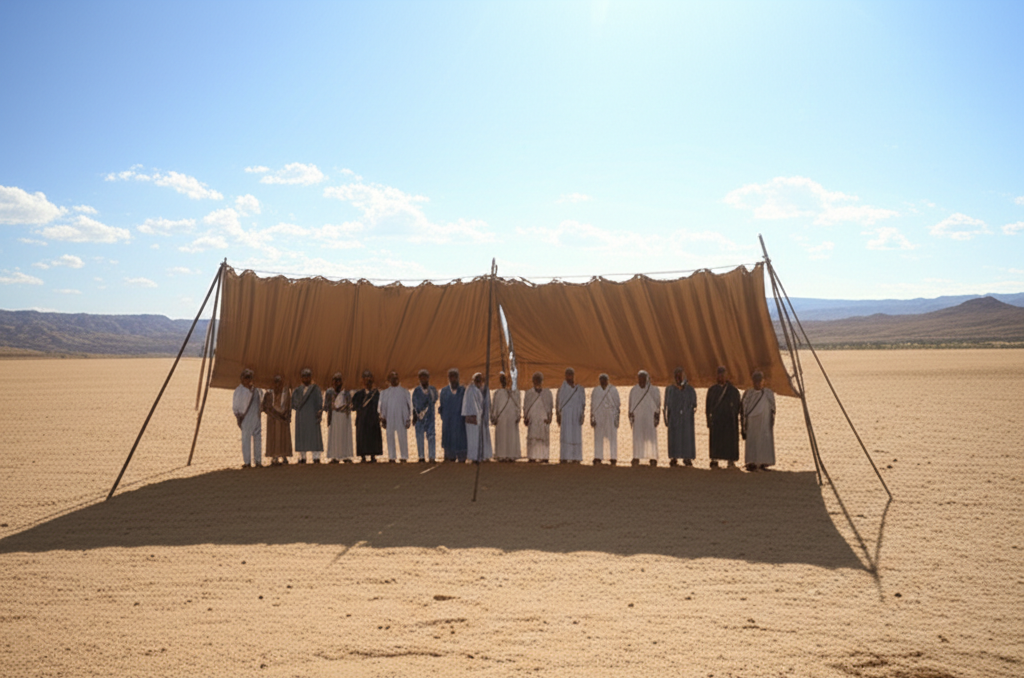
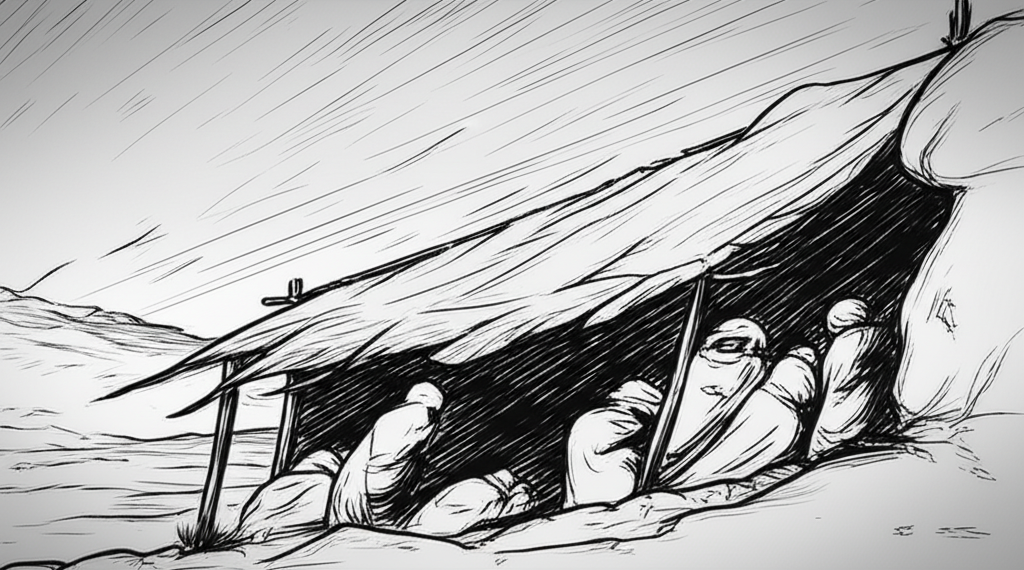
Isaiah chapter 4 kjv
- 1 And in that day seven women shall take hold of one man, saying, We will eat our own bread, and wear our own apparel: only let us be called by thy name, to take away our reproach.
- 2 In that day shall the branch of the LORD be beautiful and glorious, and the fruit of the earth shall be excellent and comely for them that are escaped of Israel.
- 3 And it shall come to pass, that he that is left in Zion, and he that remaineth in Jerusalem, shall be called holy, even every one that is written among the living in Jerusalem:
- 4 When the Lord shall have washed away the filth of the daughters of Zion, and shall have purged the blood of Jerusalem from the midst thereof by the spirit of judgment, and by the spirit of burning.
- 5 And the LORD will create upon every dwelling place of mount Zion, and upon her assemblies, a cloud and smoke by day, and the shining of a flaming fire by night: for upon all the glory shall be a defence.
- 6 And there shall be a tabernacle for a shadow in the day time from the heat, and for a place of refuge, and for a covert from storm and from rain.
Isaiah chapter 4 nkjv
- 1 And in that day seven women shall take hold of one man, saying, "We will eat our own food and wear our own apparel; Only let us be called by your name, To take away our reproach."
- 2 In that day the Branch of the LORD shall be beautiful and glorious; And the fruit of the earth shall be excellent and appealing For those of Israel who have escaped.
- 3 And it shall come to pass that he who is left in Zion and remains in Jerusalem will be called holy?everyone who is recorded among the living in Jerusalem.
- 4 When the Lord has washed away the filth of the daughters of Zion, and purged the blood of Jerusalem from her midst, by the spirit of judgment and by the spirit of burning,
- 5 then the LORD will create above every dwelling place of Mount Zion, and above her assemblies, a cloud and smoke by day and the shining of a flaming fire by night. For over all the glory there will be a covering.
- 6 And there will be a tabernacle for shade in the daytime from the heat, for a place of refuge, and for a shelter from storm and rain.
Isaiah chapter 4 niv
- 1 In that day seven women will take hold of one man and say, "We will eat our own food and provide our own clothes; only let us be called by your name. Take away our disgrace!"
- 2 In that day the Branch of the LORD will be beautiful and glorious, and the fruit of the land will be the pride and glory of the survivors in Israel.
- 3 Those who are left in Zion, who remain in Jerusalem, will be called holy, all who are recorded among the living in Jerusalem.
- 4 The Lord will wash away the filth of the women of Zion; he will cleanse the bloodstains from Jerusalem by a spirit of judgment and a spirit of fire.
- 5 Then the LORD will create over all of Mount Zion and over those who assemble there a cloud of smoke by day and a glow of flaming fire by night; over everything the glory will be a canopy.
- 6 It will be a shelter and shade from the heat of the day, and a refuge and hiding place from the storm and rain.
Isaiah chapter 4 esv
- 1 And seven women shall take hold of one man in that day, saying, "We will eat our own bread and wear our own clothes, only let us be called by your name; take away our reproach."
- 2 In that day the branch of the LORD shall be beautiful and glorious, and the fruit of the land shall be the pride and honor of the survivors of Israel.
- 3 And he who is left in Zion and remains in Jerusalem will be called holy, everyone who has been recorded for life in Jerusalem,
- 4 when the Lord shall have washed away the filth of the daughters of Zion and cleansed the bloodstains of Jerusalem from its midst by a spirit of judgment and by a spirit of burning.
- 5 Then the LORD will create over the whole site of Mount Zion and over her assemblies a cloud by day, and smoke and the shining of a flaming fire by night; for over all the glory there will be a canopy.
- 6 There will be a booth for shade by day from the heat, and for a refuge and a shelter from the storm and rain.
Isaiah chapter 4 nlt
- 1 In that day so few men will be left that seven women will fight for each man, saying, "Let us all marry you! We will provide our own food and clothing. Only let us take your name so we won't be mocked as old maids."
- 2 But in that day, the branch of the LORD
will be beautiful and glorious;
the fruit of the land will be the pride and glory
of all who survive in Israel. - 3 All who remain in Zion
will be a holy people ?
those who survive the destruction of Jerusalem
and are recorded among the living. - 4 The Lord will wash the filth from beautiful Zion
and cleanse Jerusalem of its bloodstains
with the hot breath of fiery judgment. - 5 Then the LORD will provide shade for Mount Zion
and all who assemble there.
He will provide a canopy of cloud during the day
and smoke and flaming fire at night,
covering the glorious land. - 6 It will be a shelter from daytime heat
and a hiding place from storms and rain.
- Bible Book of Isaiah
- 1 The Wickedness of Judah
- 2 The Mountain of the Lord
- 3 Judgment on Judah and Jerusalem
- 4 The Branch of the Lord Glorified
- 5 The Vineyard of the Lord Destroyed
- 6 Isaiah's Vision of the Lord
- 7 Isaiah Sent to King Ahaz
- 8 The Coming Assyrian Invasion
- 9 For to Us a Child Is Born
- 10 Judgment on Arrogant Assyria
- 11 The Righteous Reign of the Branch
- 12 The Lord Is My Strength and My Song
- 13 The Judgment of Babylon
- 14 The Restoration of Jacob
- 15 An Oracle Concerning Moab
- 16 Send the lamb to the ruler of the land, from Sela, by way of the desert, to the
- 17 An Oracle Concerning Damascus
- 18 An Oracle Concerning Cush
- 19 An Oracle Concerning Egypt
- 20 A Sign Against Egypt and Cush
- 21 Fallen, Fallen Is Babylon
- 22 An Oracle Concerning Jerusalem
- 23 An Oracle Concerning Tyre and Sidon
- 24 Judgment on the Whole Earth
- 25 God Will Swallow Up Death Forever
- 26 You Keep Him in Perfect Peace
- 27 The Redemption of Israel
- 28 Judgment on Ephraim and Jerusalem
- 29 The Siege of Jerusalem
- 30 Do Not Go Down to Egypt
- 31 Woe to Those Who Go Down to Egypt
- 32 A King Will Reign in Righteousness
- 33 O Lord, Be Gracious to Us
- 34 Judgment on the Nations
- 35 The Ransomed Shall Return
- 36 Sennacherib Invades Judah
- 37 Hezekiah Seeks Isaiah's Help
- 38 Hezekiah's Sickness and Recovery
- 39 Envoys from Babylon
- 40 Comfort for God's People
- 41 Fear Not, for I Am with You
- 42 The Lord's Chosen Servant
- 43 Israel's Only Savior
- 44 Israel the Lord's Chosen
- 45 The great king Cyrus
- 46 The Idols of Babylon and the One True God
- 47 The Humiliation of Babylon
- 48 Israel Refined for God's Glory
- 49 The Servant of the Lord
- 50 Israel's Sin and the Servant's Obedience
- 51 The Lord's Comfort for Zion
- 52 The Lord's Coming Salvation
- 53 Who has believed our report
- 54 The Eternal Covenant of Peace
- 55 The Compassion of the Lord
- 56 Salvation for Foreigners
- 57 Israel's Futile Idolatry
- 58 True and False Fasting
- 59 Evil and Oppression
- 60 Arise Shine for your light has come
- 61 The Spirit of the Lord is upon me
- 62 Zion's Coming Salvation
- 63 The Lord's Day of Vengeance
- 64 Oh that you would rend the heavens and come down, that the mountains might
- 65 Judgment and Salvation
- 66 The Humble and Contrite in Spirit